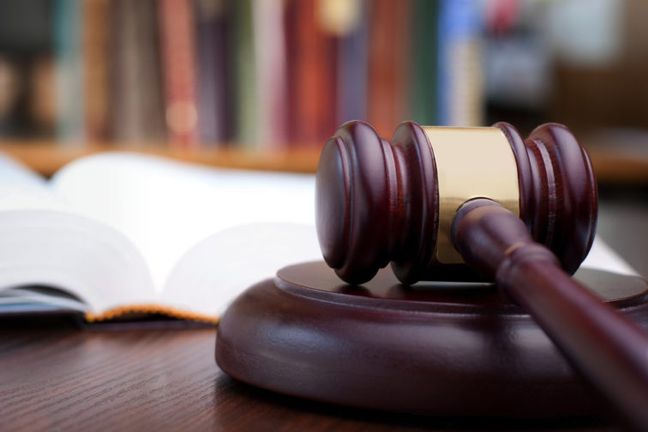Dormant Commerce Clause of the United States Constitution – Anti-diversion provision of the Arizona Constitution
Saban Rent-a-Car LLC v. Arizona Department of Revenue, No. CV-18-0080-PR (February 2019)
The legislature created the Arizona Tourism and Sports Authority (the “AzSTA”) in 2000 to build and operate a sports stadium, build Major League Baseball spring training facilities, build youth and amateur sports and recreation facilities, and promote tourism. See A.R.S. §§ 5-801(4), -802(A), -807 to -809, -815. AzSTA’s authority is restricted to counties with populations greater than two million people, meaning it has only ever operated in Maricopa County. See § 5-802(A). AzSTA’s construction projects are funded solely by taxes and surcharges approved by Maricopa County voters. See § 5-802(C). One such voter-approved surcharge is at issue here.
Soon after the creation of AzSTA, Maricopa County voters passed an initiative levying a surcharge on car rental companies based on their income derived from leasing vehicles for less than one year. See A.R.S. § 5-839(A)–(C) (authorizing voters to levy the surcharge and providing its terms). (The initiative also imposed a tax on hotels. The hotel tax is not at issue here.) The surcharge is the greater of $2.50 per rental or 3.25% of the company’s gross proceeds or gross income. § 5-839(B)(1). If the rental is a “temporary replacement” for a damaged or lost vehicle, however, the surcharge is a flat $2.50. § 5-839(B)(2). The state treasurer distributes $2.50 per rental transaction to the Maricopa County Stadium District, which has collected a surcharge in this amount since 1991. See § 5-839(G)(1); Act of June 25, 1991, ch. 285, § 10, 1991 Ariz. Sess. Laws 1444, 1451–53 (1st Reg. Sess.) (codified at A.R.S. § 48-4234). The remaining amount, the difference between $2.50 per rental transaction and 3.25% of the company’s gross income or proceeds, is distributed to AzSTA. § 5-839(G)(2). Although the surcharge is imposed on car rental companies, they can and do pass its cost on to their customers.
Plaintiff, which rented vehicles in Maricopa County and paid the car rental surcharges, sued the Arizona Department of Revenue seeking refunds and injunctive relief for all similarly situated car rental companies. The tax court certified the class and granted summary judgment for Plaintiff, concluding the surcharge did not violate the dormant Commerce Clause but did violate the anti-diversion provision. The court of appeals reversed, concluding the surcharge did not violate the anti-diversion provision.
Holding and Reasoning
The Supreme Court affirmed the decision of the court of appeals in this class action, holding the surcharge imposed by Maricopa County on car rental agencies to fund a stadium and other sports and tourism-related ventures violated neither the dormant Commerce Clause of the United States Constitution nor the anti-diversion provision of the Arizona Constitution. The Supreme Court concluded the Arizona Constitution’s anti-diversion clause, which requires revenues derived from taxes relating to the operation of motor vehicles must be allocated for public highways, does not apply to a tax relating to the operation of motor vehicles.
The Supreme Court remanded with directions to enter judgment in favor of ADOR and AzSTA and vacated the tax court’s refund order.
Takeaway
Arizona courts have utilized the following three-part test to determine whether a decision declaring a tax to be illegal should be applied prospectively only: (1) whether the decision establishes a new legal precedent or establishes a rule which could not have been foreseen; (2) whether retroactive application will further or impede the court’s new rule; and (3) whether retroactive application will produce substantially inequitable results.
Even with the three-part test, AzSTA’s appeal for prospective-only relief was an uphill battle. Some taxes may be exposed to attack given the tendency of legislatures to “juggle” their finances. One should consider whether a win in a tax case may be limited to prospective-only relief and whether a company seeking a refund of sales tax is entitled to retain the refunds or is required to return the refund to its customers.
Medical Devices – Failure to Warn – Express Preemption Provision
Conklin v. Medtronic, Inc., No. CV-17-0322-PR (December 2018)
After injuring his hip years ago, Raymond R. Conklin, II experienced chronic pain. In 2008, a physician surgically implanted a Medtronic SynchroMed II 40 ml infusion pump and catheter (“Pain Pump”) into Conklin to manage pain. Medtronic, Inc. and Medtronic Sofamor Danek USA, Inc. (collectively, “Medtronic”) designed, manufactured, marketed, and sold the Pain Pump.
Conklin underwent hip surgery in 2013 and in the aftermath suffered permanent injury allegedly caused by drug over-infusion from his continued use of the Pain Pump. Conklin and his wife sued Medtronic alleging several common law tort claims, including both strict liability and negligence claims for failure to provide adequate and timely warnings. In those claims Conklin alleged before his 2013 injury, the FDA sent warning letters to Medtronic, advising it the Pain Pump was adulterated and misbranded and stating Medtronic had failed to report adverse events to the FDA after the FDA approved the Pain Pump in its pre-market approval (“PMA”) process. Conklin also alleged before his 2013 injury, the FDA issued two recalls of the Pain Pump regarding the unintentional injection or cessation of drugs, and after his injury the FDA issued another recall relating to the Pain Pump’s unintended delivery of drugs which could result in a drug overdose. Conklin further alleged Medtronic’s failure to report post-PMA adverse events to the FDA in violation of federal law gives rise to liability under Arizona common law.
Defendant moved to dismiss under Ariz. R. Civ. P. 12(6)(b), asserting Plaintiff’s claims were expressly and impliedly preempted under federal law. The superior court granted the motion and dismissed the action with prejudice. The court of appeals vacated the dismissal of Plaintiff’s failure-to-warn claim, finding it neither expressly nor impliedly preempted, and otherwise affirmed.
Holding and Reasoning
The Supreme Court disagreed with the court of appeals and affirmed the superior court’s judgment, holding because only federal law, not state law, imposes a duty on Defendant to submit adverse event reports to the FDA, Plaintiff’s failure-to-warn claim was impliedly preempted under 21 U.S.C. 337(a).
In Arizona, “[m]anufacturers generally have a duty to warn consumers of foreseeable risks of harm from using their products.” Watts v. Medicis Pharm. Corp., 239 Ariz. 19, 24 ¶ 13 (2016); see also Restatement (Third) of Torts: Prods. Liab. § 2 (Am. Law Inst. 1998). This is so whether, as in Watts, the failure-to-warn claim is couched as one of strict liability in tort based on an alleged informational defect, see Watts, 239 Ariz. at 23 ¶ 10, or instead as a negligence claim, see 2 Dan B. Dobbs, Paul T. Hayden & Ellen M. Bublick, The Law of Torts § 464, at 950–51 (2d ed. 2011) (stating “[i]n effect, warning claims are negligence claims, as a number of courts recognize” and citing cases in support, including Powers v. Taser Int’l, Inc., 217 Ariz. 398 (App. 2007) (footnote omitted)).
Under Arizona law, therefore, a manufacturer may satisfy its “duty to warn consumers of foreseeable risks of harm from using their products,” Watts, 239 Ariz. at 24 ¶ 13, by warning a third party, but the LID does not permit (or require) a manufacturer to warn any and all third parties. Rather, the Restatement (Third) of Torts only extends the LID, as applied to prescription drug and medical device manufacturers, to “prescribing and other health-care providers.” Restatement (Third) of Torts: Prods. Liab. § 6(d)(1). The FDA is not a health care provider and does not prescribe anything for patients. (Conklin cites no authority for his assertion at oral argument the FDA should be deemed a learned intermediary in this context.)
Accordingly, the Court stated even it were to assume adverse event reports may constitute relevant warnings, Arizona law does not permit a manufacturer to satisfy its duty to warn end-user consumers by submitting adverse event reports to the FDA, and conversely, a manufacturer does not breach its duty to warn end users under Arizona law by failing to submit adverse event reports to the FDA. There is no authority Arizona law requires a manufacturer to warn a federal agency. Cf. Norabuena v. Medtronic, Inc., 86 N.E.3d 1198, 1207 (Ill. App. Ct. 2017).
Takeaway
A manufacturer can satisfy their duty if it warns a third party and there is reasonable assurance the information in the warning would be spread to patients.
Public Nuisance – Public Land with Religious, Cultural or Emotional Significance
Hopi Tribe v. Arizona Snowbowl Resort Limited Partnership, No. CV2011-00701 (November 2018)
Over sixteen years ago, the City of Flagstaff contracted to sell reclaimed wastewater to Arizona Snowbowl Resort Limited Partnership (“Snowbowl”) for artificial snowmaking at its ski area on the Peaks. Because the Peaks are located on federal land, this prompted the United States Forest Service to conduct a lengthy environmental impact inquiry, culminating in the agency’s approval. Thereafter, various tribes (including the Hopi Tribe), environmental groups, and other interested parties unsuccessfully challenged the proposed snowmaking under several federal laws, including the Religious Freedom Restoration Act (“RFRA”) of 1993, 42 U.S.C. §§ 2000bb to 2000bb-4. See Navajo Nation v. U.S. Forest Serv., 535 F.3d 1058 (9th Cir. 2008) (en banc).
Following federal court litigation, Snowbowl, the City, the United States Department of Agriculture, and the Hopi Tribe continued to discuss potential alternatives to reclaimed water. No agreement was reached, however, and the Tribe persistently alleged no proposed administrative actions “could mitigate the adverse effects of using reclaimed wastewater for artificial snowmaking at the Snowbowl.” The City also held public hearings on the matter, at which the Tribe and other interested parties voiced their opposition to the use of reclaimed wastewater on the Peaks. In 2010, the City ultimately voted to proceed with the reclaimed water contract and, after more public comment, denied a motion to reconsider.
The Hopi Tribe then filed this action in 2011 against the City on various state law grounds, alleging among other things the City’s “sale of reclaimed wastewater to make artificial snow” is a public nuisance that “will result in unreasonable harm to the environment and the Hopi Tribe.” As described in the Tribe’s complaint, “[r]eclaimed wastewater is water which has been used and circulated through the City’s municipal water sewer system, has passed through a treatment facility, and meets certain standards.” The Tribe further alleged it “has special interests in the environment, including the flora and fauna, of the San Francisco Peaks in the immediate vicinity of the Snowbowl Resort Area.” The Tribe also claimed it “will suffer specific injury” from the “runoff, windblown snow, increased unnatural noise, and elevated air pollution [that] will pervade beyond the Snowbowl Resort Area” and into areas the Tribe uses “for ceremonial practices, hunting[,] . . . the gathering of natural resources[,] . . . and utilitarian purposes.” For example, “[n]atural resources the Hopi collect, as well as shrines, sacred areas, and springs on the Peaks will come into contact with the blown reclaimed wastewater,” “negatively impact[ing]” the Tribe’s use of the wilderness and surrounding areas. More broadly, the Tribe alleged “the Snowbowl expansion project,” “additional traffic,” and the very “presence of the Snowbowl Resort” itself will adversely impact the “natural environment” and unduly interfere with the Tribe’s cultural use of the public wilderness for religious and ceremonial purposes.
At issue was whether the Hopi sufficiently alleged a “special injury” for an actionable public nuisance claim. The Tribe alleged it would suffer special injury by the interference with the Tribe’s cultural use of the public wilderness for religious and ceremonial purposes. The trial court ruled the Tribe failed to satisfy the special injury requirement on the basis of religious or cultural practices.
Holding and Reasoning
The Supreme Court affirmed the trial court’s judgment in favor of Arizona Snowbowl Resort Limited Partnership (Snowbowl) and the City of Flagstaff on the public nuisance claim brought by the Hopi Tribe, holding environmental damage to public land with religious, cultural or emotional significance to the plaintiff is not a special injury for purposes of the public nuisance doctrine.
The Tribe argued the special injury requirement applies with less force when, as here, the plaintiff seeks to enjoin the alleged public nuisance. The Supreme Court disagreed.
In analyzing public nuisance claims, no Arizona case has distinguished for analytical purposes actions seeking damages from those seeking only injunctive relief. In fact, in Armory Park the plaintiff sought, and the trial court granted, only injunctive relief. 148 Ariz. at 2–3, 10. In affirming the trial court’s preliminary injunction, this Court did not apply a lower or different standard for establishing special injury and recognized the two-fold rationale for the requirement in all public nuisance actions. Id. at 4–5. But even assuming the special injury criteria differ for equitable remedies, those criteria are inapposite here—the complaint states the Tribe is seeking an injunction “or in the alternative, damages.”
Takeaway
In Arizona, a private party can make a public nuisance claim only if it has suffered damage different from the general public. Here, the Hopi Tribe could not claim Snowbowl’s use of treated wastewater to make its own snow caused “a special injury” to the tribe’s cultural and religious traditions.

 Author: Terra Affourtit
Author: Terra Affourtit
 Editor: Christopher Schon
Editor: Christopher Schon
 Cannabis Workers Allege Quota to Trim 4 Pounds a Day Violates the California Labor Code
Cannabis Workers Allege Quota to Trim 4 Pounds a Day Violates the California Labor Code
 The Ninth Circuit Reminds Us: Every Word Matters
The Ninth Circuit Reminds Us: Every Word Matters
 NO WAY, PRO SE! The Consequences of Abusing the Judicial System as a Pro Se Litigant in Colorado
NO WAY, PRO SE! The Consequences of Abusing the Judicial System as a Pro Se Litigant in Colorado
 Victim of Financial Mismanagement or Unlawful Retaliation? New Jersey City University Program Founder Claims School Retaliated After Reporting Alleged Sexual Harassment
Victim of Financial Mismanagement or Unlawful Retaliation? New Jersey City University Program Founder Claims School Retaliated After Reporting Alleged Sexual Harassment
 “Real Housewives” Gets a Reality Check
“Real Housewives” Gets a Reality Check
 Missing a Chapter: Insufficiency of Expert Deposition Testimony in Medical Malpractice Litigation
Missing a Chapter: Insufficiency of Expert Deposition Testimony in Medical Malpractice Litigation
 Crash Course: Why Summary Judgment Misses the Mark in Illinois Multi-Cause Limousine Crash Collision
Crash Course: Why Summary Judgment Misses the Mark in Illinois Multi-Cause Limousine Crash Collision
 Bitter Truths: Lead, Cadmium, and Defective Pleadings in California Chocolate Class Action
Bitter Truths: Lead, Cadmium, and Defective Pleadings in California Chocolate Class Action
 The Law of Unintended Consequences: Including Insurance Brokers in Litigation Strategy Communication May Waive the Attorney-Client Privilege
The Law of Unintended Consequences: Including Insurance Brokers in Litigation Strategy Communication May Waive the Attorney-Client Privilege
 When the Jury Believes Your Injury is Permanent, but Gives You Nothing for It
When the Jury Believes Your Injury is Permanent, but Gives You Nothing for It
 Colorado Case Law Update
Colorado Case Law Update
 Colorado Case Law Update
Colorado Case Law Update
 The Emotional Distress Catch-22
The Emotional Distress Catch-22
 Defamation – Immunity Under the Communications Decency Act For Republishers or Reposters Absent Material Modification
Defamation – Immunity Under the Communications Decency Act For Republishers or Reposters Absent Material Modification
 Stop Burning Your Core! Ensure Your Gym Rats Leave With Contracts
Stop Burning Your Core! Ensure Your Gym Rats Leave With Contracts